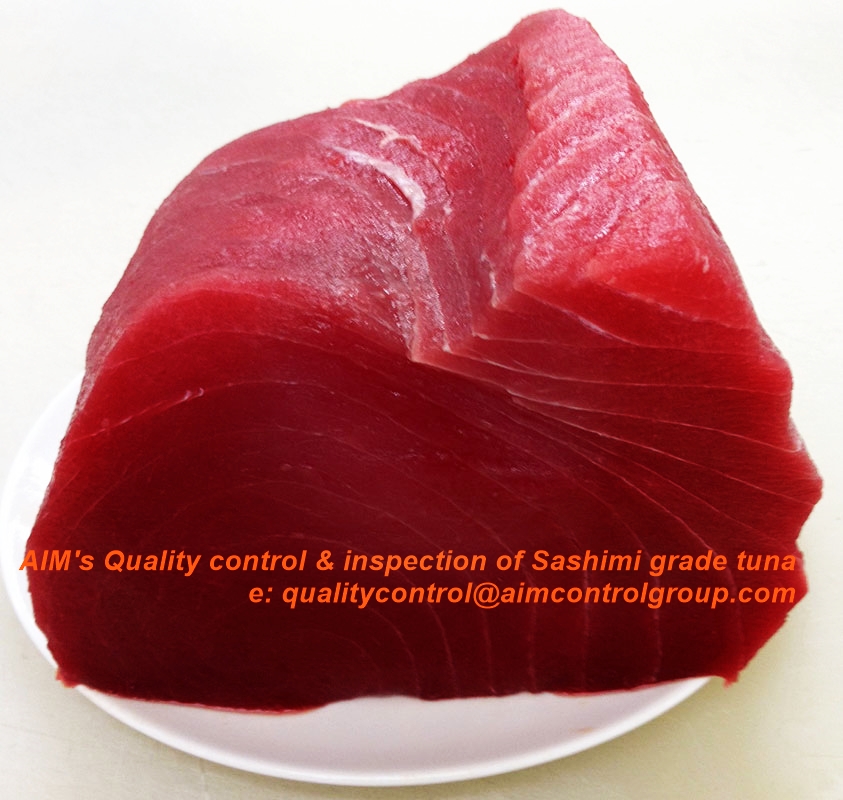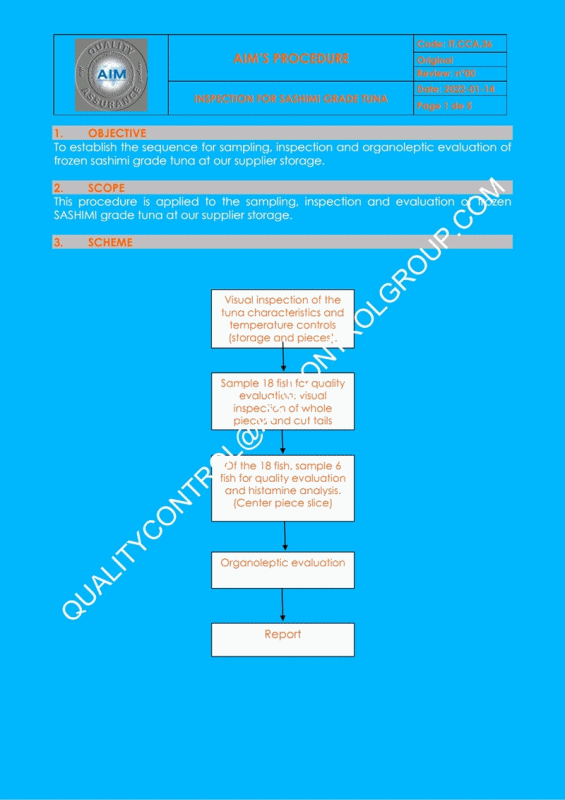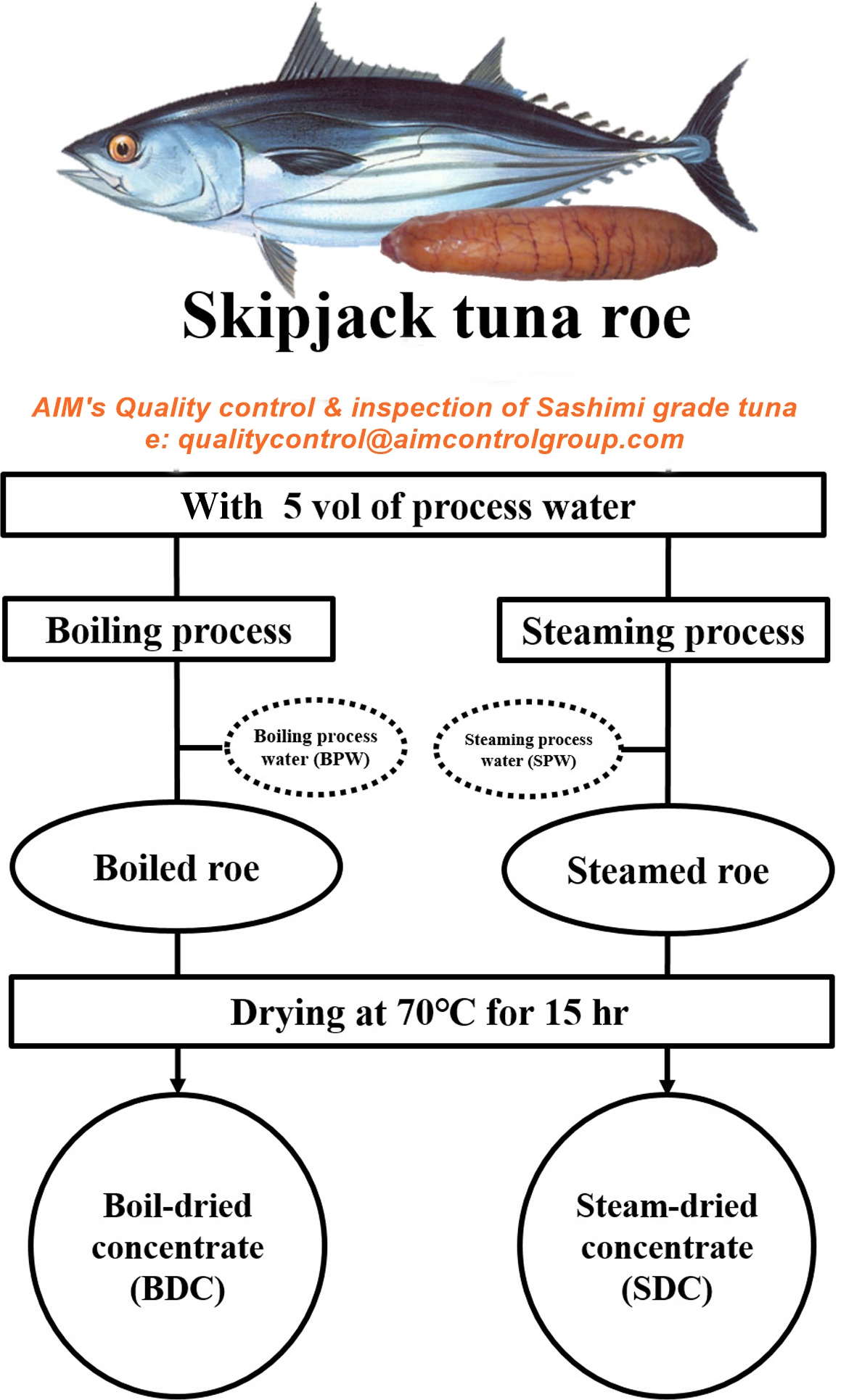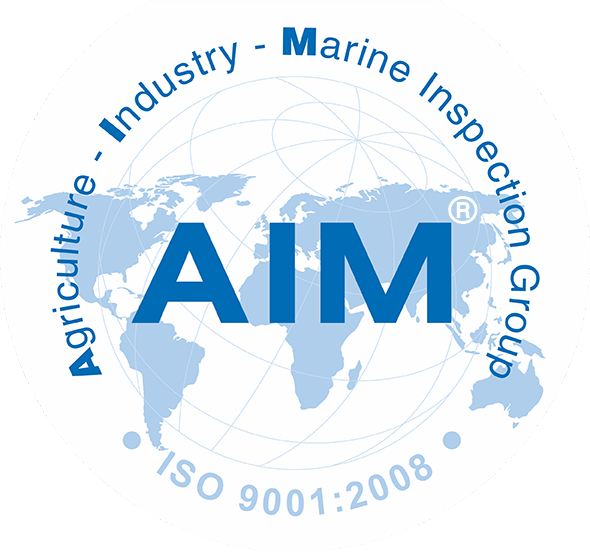Sashimi grade tuna inspection
Sashimi grade tuna inspection
AIM Control (AIM Group®) quality experts who can control of quality Sashimi grade tuna inspection services for client in all locals with their standards, Japanese and International
The foods can rival a sliver of raw fish, impeccably fresh and minimally adorned, whether it's perched atop a mound of sushi rice or swimming in a spicy citrus bath.
Quality control Sushi, Sashimi, Crudo, Poke, and Tartares a daunting task not only at premises premise of supplier.
In part, this stems from uncertainty about the risks of eating raw fish away from the potential dangers.
the good fish markets are rarely sure of their ability to gauge the freshness of fish, both whole and filleted.
Finally, additional confusion has been borne out of some widespread and misleading terminology. But, as anyone who has eaten much sushi knows, there are plenty of other fish in the sea. In indicating that these fish are safe to eat raw.

Demystify what "sushi-" and "sashimi-grade" mean, and to outline best practices for preparing fish at home for raw consumption.
Note: The information in this guide applies to finfish and flatfish only. Raw shellfish, including crustaceans (like shrimp and lobster) and mollusks (oysters and clams), are subject to their own set of considerations.
"Sushi-Grade" and "Sashimi-Grade"
Officially, the terms "sashimi-grade" and "sushi-grade" mean precisely 04 grades.
"It's not a marketing term to actually being able to consume raw fish."
What the FDA Guidelines Mean
Regulations regarding fish sold for raw consumption
Describes those specifications this way: "Any wild fish except tuna species:
-
species—bigeye,
-
species—yellowfin,
-
species—bluefin,
-
species—bonito/skipjack
Those wild fish need to be frozen for specific periods of time at specific temperatures to get rid of parasites, reaching as low as -31°F (-35°C), called a "super freezer," which is exactly that maintains super-cold temperatures. (Down to of -60°F = 51°C.)
The species-specific risks of live parasites in fish. Warning about the perils of mislabeling fish than as a practical guide to which fish must be frozen prior to raw consumption.

How Dangerous Are Parasites?
The elimination of parasites, which is the main goal of its freezing guidelines,
Ex: of infection by Anisakis worms, broad fish tapeworms and harmful other parasitic worms.
Nematodes, or roundworms, from the genus Anisakis.
At worst, provoke some discomfort—nausea and possible stomach pain, similar in kind to a bout of food poisoning.
We can not based on in certain cultures, fish has long been served raw despite never having been frozen at all!
"Infection by these parasites can be very serious and can lead to resection [surgical removal of part of an organ] of the intestine,"
All parasites seek to reach their end-host organisms.
Fish carrying infectious worm larvae will be consumed by an end-host organism.
Even experts can fail to completely deworm a fillet.
"It's best to properly freeze or cook the fish. That's the bottom line,"
So it is incumbent upon consumers to be aware of the risks and how to prevent the infections."
In addition, fish processors and markets must limit the introduction of pathogens, with the fish must work clean—in clean facilities, with clean tools and clean hands—and minimize their contact with the fish flesh.
Note: the general rule is that the colder you keep your fish, the longer it will keep and the safer it will be to eat.
Beyond Safety
For a specific fish to be sashimi-grade depends not just on the safety of the fish, but also on its quality.
"Of course, freshness is important,"
Buy Whole, Fresh Marine Fish (but Not Cod)
Keep Fish Cold
Ensure Your Work Area, Tools, and Hands Are Clean and Dry
Identify for Worms
Ex: If you want to be really thorough about parasite removal, you can hold thin fillets against a glass plate and shine a strong light through it, which will reveal many, if not all, of whatever parasites may be in the flesh. Similarly, cutting your fish in very thin slices will increase your chances of discovering parasites.

See more The handling manual Tuna
Other news :
- Seller Supplier Factory Audit
- Inspection Services for Goods
- Walnuts quality control inspection services
- Consumer product quality inspection
- Factory Assessment / Factory Audit Inspection
- Factory security Inspection safety assessment
- Food and Drink Quality inspection
- Testing and Inspection services for products
- Verification Auditing services
- Family Textile Products Test Inspection







